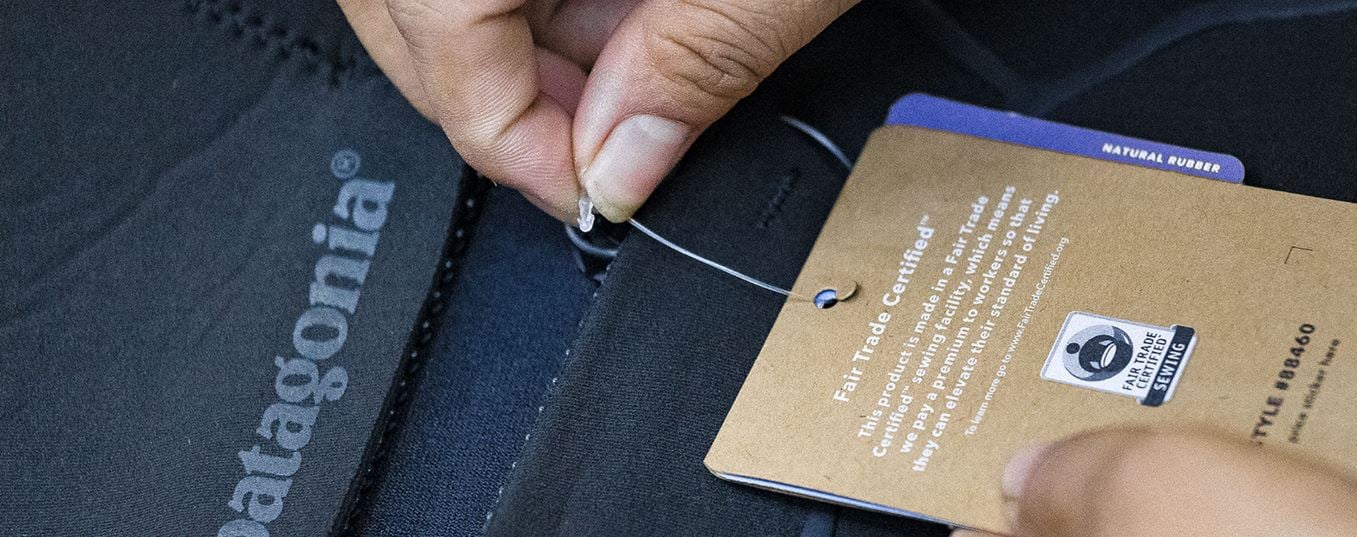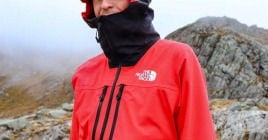Once upon a time, there was Yvon Chouinard, passionate about climbing, adventure and the environment. He decided in the 1950s to design and manufacture his own climbing equipment. Lighter, more manageable, his products were an immediate success with his family and friends. A few years later and developing products around the practice of climbing, Patagonia was born in 1973.
"We are in business to save our home planet".
Patagonia, a pioneering company in ecology! Quickly, the company developed an ecological and ethical awareness about the environmental and societal impact of their products.
Designing eco-responsible products
Recycled materials to limit the cultivation of new natural materials
As early as the 1990s, Patagonia was one of the first companies to design products from recycled fibres. Their first recycled textile is the famous Synchilla wool fleece made from bottles... Sprite!
In 2008, they introduced the use of other recycled fibres such as nylon, wool, cotton, down and cashmere.
Why recycle? The motivations behind this environmental commitment
"Only 15% of what you put into recycling is actually recycled."
Patagonia is aware that recycling is not the solution to end climate change, but that it is a solution to limit its environmental impact. Thus, the company is reinventing manufacturing codes.
Natural materials too often come from an intensive agricultural culture, very water-intensive, which impoverishes the soil, with a poorly protected workforce. Patagonia wants to bypass this production method, as virgin natural fibres are exposed to climatic conditions that can disrupt the supply of raw materials when manufacturing products. Therefore, limiting the cultivation of new raw material is a first step to limit its carbon emission.
The ideal recipe to design an ecological and technical product!
Did you know that nylon and polyester are materials derived from petroleum products? So they are made from fossil fuels that contribute to global warming. By using recycled fibres such as nylon and polyester (which have the advantage of being highly absorbent and extensible), Patagonia wishes to reduce environmental exploitation by using waste produced by factories in the different stages of manufacturing articles, and those created by our "post-consumer" waste with plastic bottles for example.
How to transform waste into textiles?
There are two methods of waste recycling:
- Mechanical recycling, in three stages: the waste is washed, crushed into small pieces and then melted down to obtain recycled plastic.
- Chemical recycling by depolymerization, a chemical process that breaks the bonds between blocks of monomers so we can purify my monomers, this process when we have dirty waste from different places. This technique requires more energy than mechanical recycling, but allows a better quality fibre.
The Patagonia range is made of 72% recycled materials and avoids the emission of 20,000 tons of CO2 in one year, representing the electricity consumption of 1300 households for one year!
The brand's objective is to achieve carbon neutrality by 2025.
The best waste is the waste that you don't produce, the ultimate goal of recycling is not to feel freer to consume and throw away more.
The brand adopts an environmental strategy, offering high quality products so that they last longer. You can reduce carbon, water and waste emissions by 20% to 30% by simply extending the life of a product by 9 months.
How about thinking about the way we consume? Let's extend the life of products!
A beautiful lesson in life at Patagonia, where the brand wants to offer solutions to over-consumption. Use products longer, where product recycling must be the goal in order to bring materials back to life. Recycling is not a magic solution, recycling is always a source of pollution.
Thus, Patagonia is part of a philosophy of the 3 R's: Repair, Reuse and Recycle.
Since 2016, the American brand has developed the movement, called "Worn Wear", a free initiative offering consumers to come and repair their products, with small repairs (snags, zippers, etc.) to extend the life of the clothes.

Patagonia a militant company
This eco-citizen company wishes to accompany people, through the Patagonia Action Works platform, to find environmental actions near you! This foundation aspires to connect people and NGOs with similar ideas, time and projects in order to bring them together to design common projects.
Go to the Patagonia Action Works page and find out how to get involved in an environmental project at different levels!
Environmental and societal actions
Since the birth of the brand, Patagaonia has always been committed to improving the social and environmental aspects of its business internationally. Since 1985, it has been committed to donating 1% of its sales to environmental associations.
The owner and founder of Patagonia, Yvon Chouinard, launched in 2002 the organization "1% for the planet", which creates partnerships with associations whose actions are aimed at preserving the environment and restoring green spaces.
In addition to the environmental aspect, Patagonia is committed to social issues thanks to the Fair Trade Certified label. Fair Trade helps to improve the working conditions and quality of life of workers. This program aims to guarantee the safety and health of workers in compliance with social and environmental standards worldwide.
Patagonia actively participates in a more virtuous and sustainable fashion, offering innovative and eco-responsible products. Find a wide range of products on our Patagonia brand page.







